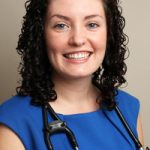As we age, so does the immune system. Individuals age 65 and older are more susceptible to respiratory infections, influenza, and pneumonia, and a slower immune response can be to blame. Both innate and adaptive immune responses are slower and less robust as we age. Improving the body’s ability to recognize, remember, and mount a response against “foreign invaders” greatly reduces the risk of infection and illness.
The immune cells that remember past infection, memory T lymphocytes, become less effective and slower to respond as we age. These memory T cells are counted on after a vaccination to provide immunity.1 It has been shown that rates of vaccination effectiveness decrease with age, at 38% effectiveness in healthy children and only 23% effectiveness age 65 and older.2 So what can be done to help provide a better immune response and vaccination effectiveness in the aging population? Improve the gut.
Having balanced gut flora is important for digestion and nutrient absorption, but it also plays a role in the way the immune system reacts and responds. A study on the supplementation of various strains of Lactobacillus probiotics revealed their ability to stimulate T cells, which are responsible for protection against viral infections and tumors in addition to providing immunity post-vaccination.
The use of probiotics versus placebo to reduce upper respiratory infection rates was tested in over 3720 participants age 40 and over using various study methods. Probiotics did prove to be more effective than placebo in reducing upper respiratory infection rates in addition to a reduction in antibiotic prescriptions and cold-related absences from work.4
Proposed Mechanism of Action
Enhanced Phagocyte activity
Phagocytes are cells that eat “foreign invaders.” They troll the body and eat up cellular debris, virus, and bacterial molecules and help to signal to the rest of the immune system when there is a war to be waged, AKA you getting sick.5
Improved Immunoglobulin levels
Antibodies are made by the immune system in response to an illness. They attach themselves to foreign invaders, like bacteria and virus, so they can be destroyed. If your body is deficient in immunoglobulin levels you are at a greater risk of developing repeated infections.6
Increased production of Cytokines
Cytokines are part of the cellular signaling in the body that attract various immune cells to areas of inflammation, infection or trauma in the body. The quicker and more efficient this process is the quicker the immune system can resolve the cause of alarm.7
What probiotics are right for you?
This all depends on your diet, medications you may be taking, antibiotic history and many other factors. When it comes to supplementation it is helpful to speak with your naturopathic physician to determine the appropriate dose and strains for your health needs. Digestive analysis can be done to determine the exact ecosystem of your gut, which helps to pinpoint deficiency and need for supplementation.
 Dr. Ashley Burkman received her Doctor of Naturopathic Medicine degree from the National University of Health Sciences in Chicago. She is deeply rooted in classical naturopathic medicine, practicing the belief that the human body has an innate ability to heal itself. She works with patients toward lifestyle adjustments in order to bring about long-term health. Viewing the body as an integrated whole and addressing all aspects of what determines health is the cornerstone of both naturopathic medicine and Dr. Burkman’s practice.
Dr. Ashley Burkman received her Doctor of Naturopathic Medicine degree from the National University of Health Sciences in Chicago. She is deeply rooted in classical naturopathic medicine, practicing the belief that the human body has an innate ability to heal itself. She works with patients toward lifestyle adjustments in order to bring about long-term health. Viewing the body as an integrated whole and addressing all aspects of what determines health is the cornerstone of both naturopathic medicine and Dr. Burkman’s practice.
Dr. Ashley Burkman is a licensed naturopathic physician in the state of Connecticut. Commitment to the growth of her profession hasledher to participate in the several campaigns to expand the scope of practice of naturopathic physicians in several states. She is also a member of both the Connecticut Naturopathic Association and American Association of Naturopathic Physicians.
Dr. Burkman, an Iowa native, enjoys perusing local farmers markets, spending time with friends and family, and searching for new hiking trails to conquer. She attends comedy shows and baseball games regularly and has a soft spot for cats.
Dr. Burkman and Dr. Lauren Young practice as fully licensed Naturopathic Physicians at Connecticut Natural Health Specialists, LLC, in Manchester, CT. Most major health insurances accepted. New patients are encouraged to call for an appointment.
References:
- Briceño, O, Lissina, A, Wanke, K, et al. Reduced naïve CD8 T-cell priming efficacy in elderly adults. Aging Cell. 2015. doi:10.1111/acel.12384.
- How to boost your immune system – Harvard Health. Harvard Health. Available at: http://www.health.harvard.edu/staying-healthy/how-to-boost-your-immune-system. Accessed October 24, 2015.
- Rask, C, Adlerberth, I, Berggren, A, Ahrén, IL, Wold, AE. Differential effect on cell-mediated immunity in human volunteers after intake of different lactobacilli. Clin Exp Immunol Clinical & Experimental Immunology. 2013;172(2):321–332. doi:10.1111/cei.12055.
- Lu, Z, Dong, BR, Huang, CQ, Wu, T. Probiotics for preventing acute upper respiratory tract infections. Protocols Cochrane Database of Systematic Reviews. 2015. doi:10.1002/14651858.cd006895.
- Maneerat, S, Lehtinen, MJ, Childs, CE, et al. Consumption of Bifidobacterium lactis Bi-07 by healthy elderly adults enhances phagocytic activity of monocytes and granulocytes. Journal of Nutritional Science J Nutr Sci. 2013;2. doi:10.1017/jns.2013.31.
- Trejo, F, Sanz, Y. Intestinal bacteria and probiotics: effects on the immune system and impacts on human health. Diet, Immunity and Inflammation. 2001:267–291. doi:10.1533/9780857095749.3.267.
- VIAŞU-BOLOCAN, L, POPESCU, F, BICA, C. Probiotics and Their Immunomodulatory Potential. Probiotics and Their Immunomodulatory Potential. 2013. Available at: http://www.chsjournal.org/issues/volume-39-issue-4-2013/probiotics-and-their-immunomodulatory-potential. Accessed October 24, 2015.

















